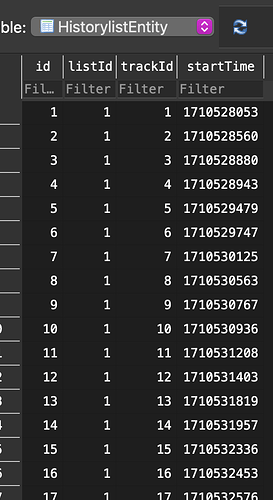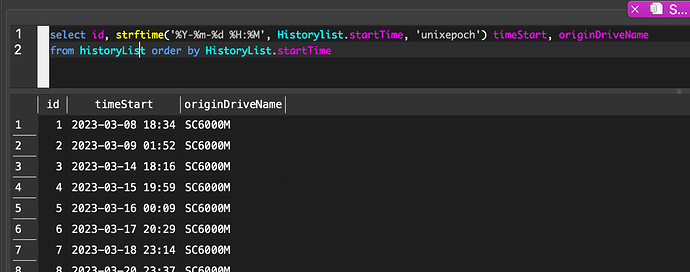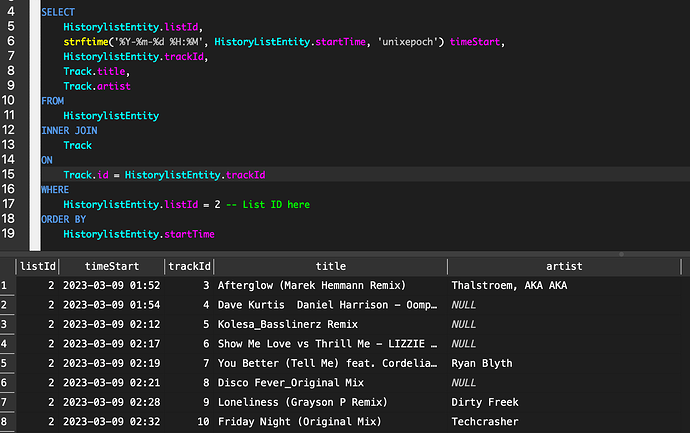Hey, normally I export tracks to the internal SSD on my Prime 4+ and play from that single Source. Last night, I played tracks from that internal SSD, and would switch over to a USB I plugged in, with it’s own library, etc.
After the set, I normally open Engine DJ Desktop and export the set playlist via History functionality, but I noticed that from last night, there are two entries in my history for that date, one of them containing only tracks played from the internal SSD, and another containing only tracks played from the USB.
Once I learned how Engine DJ Desktop shows all your libraries of all the drives on your machine, merging them together into a single view, I kinda expected to see something similar with History, even if it meant needing to have the other sources plugged in when exporting it, but instead I see two completely separate History entries.
I believe that in the past if I’ve mixed two sets on the same day, both of those sets’ tracks were found in the same History entry, under the date performed, so I thought the same would be true for a single set performed using multiple Sources.
This isn’t a huge deal, as I can just export both History entries, and merge them, except the exports are missing a critical field: “Start Time”. If these exports contained “Start Time”, I could merge both .csv files, sort by this column, and have a single, unified setlist that reflected the order of the tracks played, regardless of source.
If there is a way that I can add “Start Time” to my History exports, please let me know, otherwise, I hope to see this column added to these exports. I also hope to see the row values to be YYYY-MM-DD for proper string sorting without having to interpret the values as datetime objects.
Thanks


